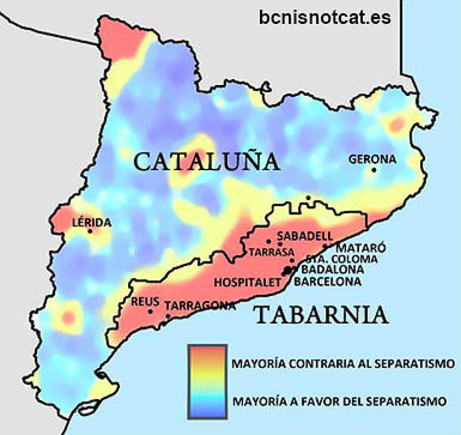“The harm which has resulted from this process has affected the entire force” a high-ranking officer assured us. Over lunch he went over a lengthy list of problems, which now required the
Mossos to repair everything they’d accomplished in over two decades. “We need to rebuild our relationship with the courts and prosecutors, as well as with the
Guardia Civil and National Police, and also with political figures, along the way we need to maintain the relationship between command and the force on the streets.”
Former regional government
conseller for interior Joaquim Form’s (an avowed separatist) arrival three months before the referendum, sowed distrust in the
Guardia Civil and National Police. Trapero set off alarms when members of the
Guardia Civil were trapped 18 hours in the regional government’s offices for the Economy (searching for records of the illegal referedum’s financing). “On that date we lost patience with Trapero and his followers” a
Mossos detective who has worked with Trapero told us. “The role of the
Mossos as static witnesses on the day of the referendum was the final push into the abyss of law enforcement credibility” the detective said.
“Nobody wanted to go in with batons, but to send officers with just notebooks was a mistake. We didn’t do the job, this is killing our image as a politically neutral force” a commander told us. Trapero is not believed to support separatism, “he tried to satisfy everyone (separatists and constitutionalists) and this was not possible” an regional government Interior official told us.
Once it was evident the Mossos would not impede the illegal referendum denunciations followed, witnesses recalled the judge of Catalonia’s Supreme Court who ordered Trapero to prevent voting could not contain his anger; “you disobeyed me!” he denounced (followed by ‘thicker’ words).
After the regional government’s ouster there have been tentative efforts at rapprochement between the judiciary and
Mossos. Only recently has the Chief justice at the Catalonian Supreme Court restored responsibility for security at the Court to the
Mossos. The regional government’s Interior offices see restoring relations with the courts and prosecutors as a priority, otherwise the
Mossos would be relegated to patrolling, traffic and low level crime, with anti-terrorism and criminal investigation in the hands of the national forces.
The effects of the referendum are now part of the history of politics and the police in Catalonia. Pictures of the National Police and Guardia Civil assaulting voters contrasted with those of the
Mossos standing by, but a there will be a reckoning. Two and a half months since the referendum a time bomb ticks in the midst of the Mossos as they fear the consequences of following unlawful orders. About 200 officers already have been questioned by Internal Affairs, some have also been summoned by the courts.
“Concatenated charges have ruined the relationship between command and the force” a spokesman from the officer’s union told us. “many were sent out with just a roll of tape and a notebook to confront hundreds of people, and now they are asked to explain themselves.”
Among the issues pending detonation is the Guardia Civil’s investigation of the lack of enforcement by the
Mossos, they've seized records of hundreds of hours of communications from commanders. According to some sources the audios imply “complete involvement” in the unlawful referendum. Another pending matter is the analysis of emails by Trapero.
Ties with the National Police and
Guardia Civil will be the most difficult to restore. Now there is a coldness between commanders, among patrolling officers insults are common. In Lerida and Gerona
Mossos were acknowledged as “cowards” or “rats” by Spanish police.
This crisis has created uncertainty in the highest levels of the Mossos. The regional Interior office disregarded those who called for Trapero’s complete removal, they opted for a more subdued change. Second in command Ferran López was promoted and he resolved successive promotions to fill the gaps. Madrid highlights the “respect” they have for Lopez’s decisions and he reiterates his position is “temporary”. Some expect Miquel Esquius will become the regional police chief after the regional elections. Three other contenders apparently will be demoted (including the one in charge of official escorts who facilitated Puigdemont’s escape).
Madrid says that after the regional elections the
Mossos will recover their autonomy, between now and then the force recovers and tries to defend itself. Trapero has only spoken to put distance between what has ruined his career; when Puigdemont urged him to join his campaign Trapero responded “don’t even ask”.
Independencia de Cataluña: Mossos: Nadie se fía de nadie | EL MUNDO


